Tab Hunter Revealed How Secret Affair With Anthony Perkins Ended: “I Felt Betrayed”
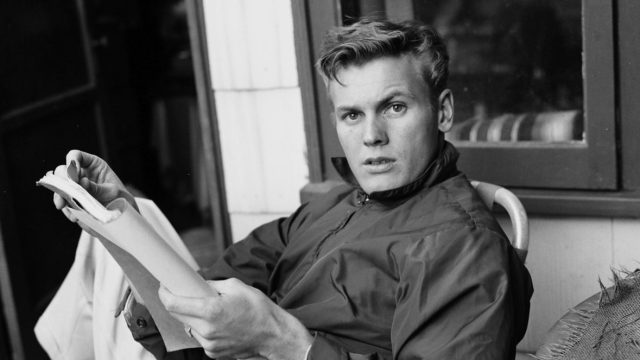
Coming out as LGBTQ+ as an actor isn’t necessarily easy, even in 2023. But in the Golden Age of Hollywood, there was even more secrecy around the subject. The late Tab Hunter (born Arthur Kelm) was just one gay actor who spent his career closeted. The ’50s and ’60s heartthrob didn’t come out publicly until 2005, over a decade after he’d retired. Even then, it wasn’t entirely his choice—Hunter told Slant in 2015 that he had heard from his partner Allan Glaser that there was a tell-all book about him in the works, which prompted him to get ahead of it and tell his own story in his memoir, Tab Hunter Confidential: The Making of a Movie Star, which was later developed into a documentary. In taking control of his own narrative, the actor also opened up about the discreet love affairs he had with other stars, including a relationship with Anthony Perkins of Psycho fame. Read on to find out what Hunter said about their romance, the secrecy they were forced into, and how it all ended with some hurt feelings.
READ THIS NEXT: Richard Burton Called Elizabeth Taylor an “Eternal One-Night Stand.”
Hunter met Perkins when they were both breaking out.
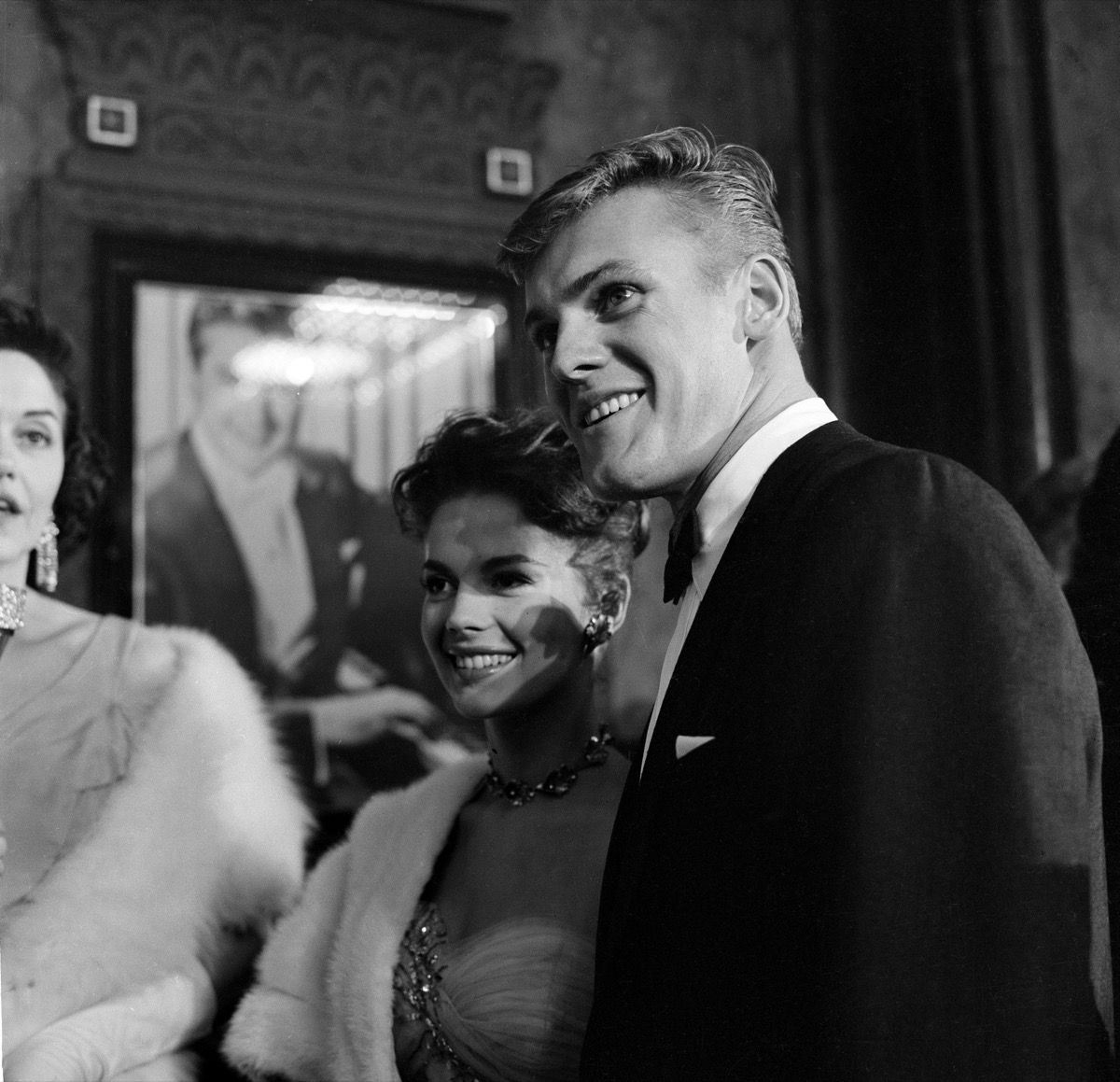
Hunter wrote in his memoir that he was initially discovered by agent and former actor Dick Clayton after being discharged from the Coast Guard for enlisting underage. A clean-cut-looking, all-American boy-next-door type, Hunter was taken on by Henry Willson, the same agent who represented the also-closeted Rock Hudson, and soon starred in 1954’s Return to Treasure Island. His sexuality was something of an open secret in Hollywood, and Hunter had some close calls. As a 2015 interview he did with The Hollywood Reporter explains, when Hunter left Willson to be represented by his old friend Clayton, Willson gave the gossip magazine Confidential a story about Hunter being in attendance—and arrested at—a party for gay men, in order to kill a story about Hudson. It didn’t do much damage to his career, fortunately, and Hunter went on to roles in films including 1958’s Damn Yankees and 1963’s Operation Bikini.
It was in 1956 when Hunter met Perkins at the Chateau Marmont. Speaking to Attitude for a piece published a few weeks before he passed away in 2018, the actor recalled of their meeting, “He was there with a songwriter friend, and they were all around the pool. He had just been filming Friendly Persuasion with Gary Cooper and Dorothy McGuire. I went for a swim, and when I came out, my friend Venetia Stevenson said, ‘Oh, I want you to meet Tony—do you know him?'”
Perkins was the more ambitious of the two.
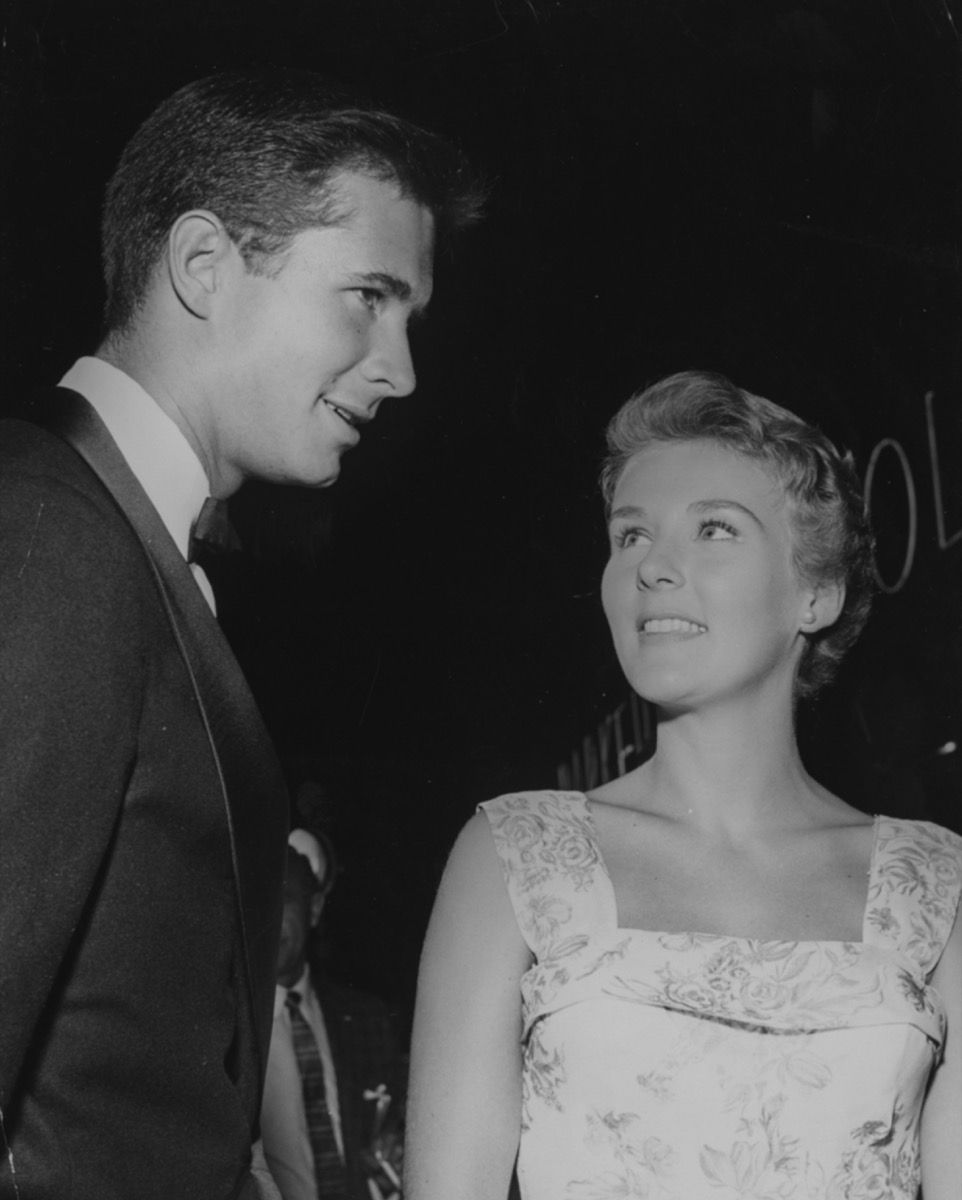
Hunter already knew who Perkins was. Though Friendly Persuasion was only Perkins’ second feature film, it had garnered him a Golden Globe for Most Promising Newcomer and an Oscar nomination for Best Supporting Actor. And, though he was not out publicly, Perkins had a level of notoriety within the LGBTQ+ actor community for starring in a Broadway production of the play Tea and Sympathy in 1954 as Tom Lee, a gay character. Like Hunter, he was being marketed to fans as a wholesome heartthrob; both up-and-coming stars, who were almost the same age, released pop music in the late ’50s.
“We just chatted and got on, and soon we were starting to see each other,” Hunter told Attitude of the early stages of their relationship. However, they soon discovered that they had different attitudes towards their work as actors. “I loved being part of the movie industry, but Tony was more career-focused than I was,” Hunter explained. “Despite the opposition, we did continue seeing each other. I remember one summer, we took a little beach house with his family and friends; it was quite wonderful. But it was always out of the public eye.”
Perkins’ studio forbade him from seeing Hunter.
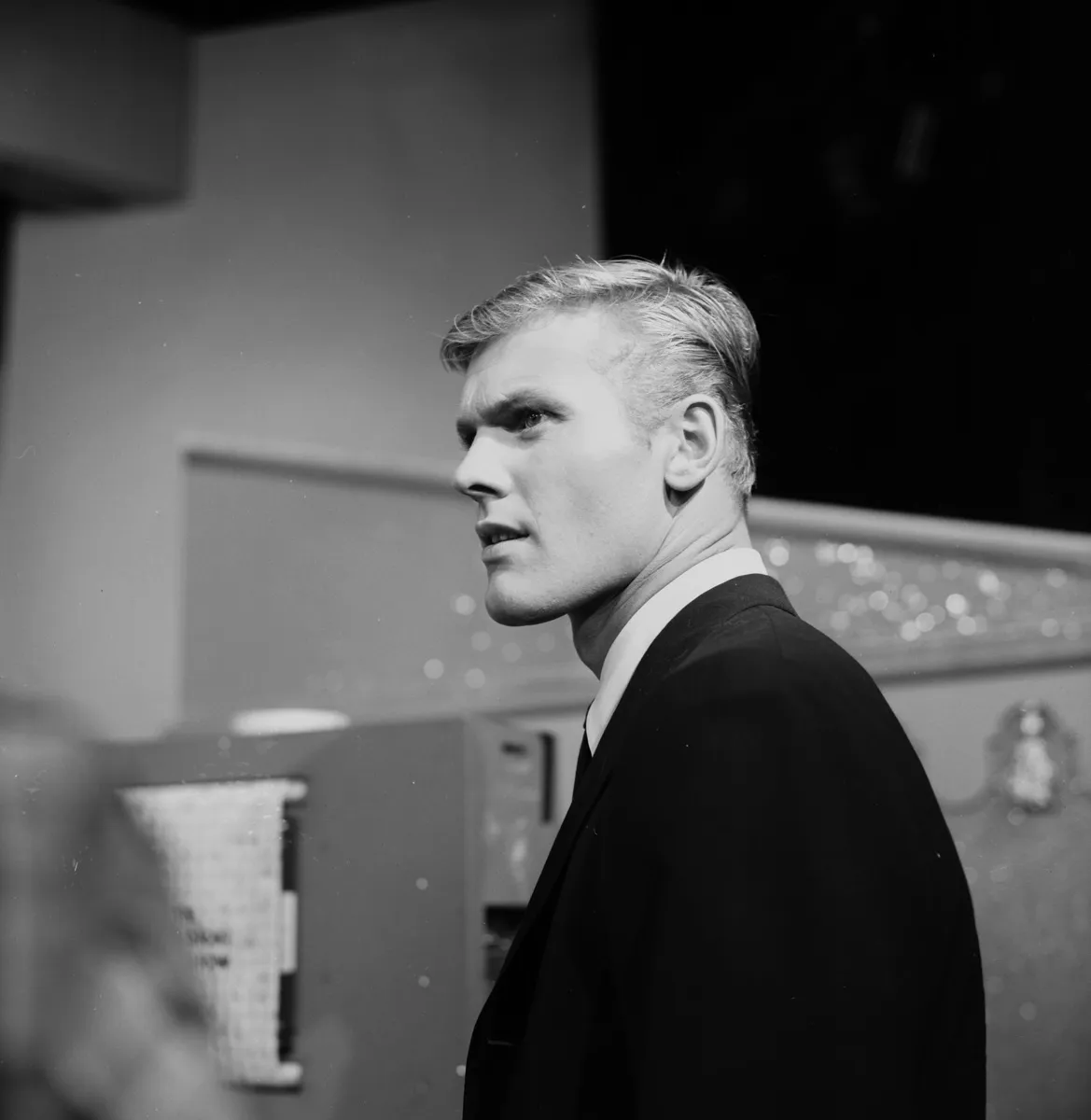
Looking back, Hunter acknowledged that it wasn’t the best time for him and Perkins to have started a relationship, as both of their careers were taking off in 1956. “It was difficult; we couldn’t just go out for dinner together or go see a movie because we were both getting so popular back then,” he told Attitude. “I didn’t talk about my personal life to anyone back then at all. The way I saw it, it was nobody’s [expletive] business.”
This was also the era when studios contracted actors to exclusively make movies for their studios. Hunter was contracted to Warner Bros., which seemed to take the same position as him about the relationship. (“Warner Brothers never said a word about my sexuality, and that’s just the way I wanted it,” the actor said.) But Perkins was contracted to Paramount, and that was a different story.
“However, Paramount did have something to say about my relationship with Tony, and they told him they didn’t want him to see me anymore,” Hunter claimed in 2018. He wasn’t surprised, explaining, “Every studio was run by an executive who had their own policies and their own ways of doing things. And Paramount ran a really tight ship.”
The relationship deteriorated when Perkins took a role from Hunter.
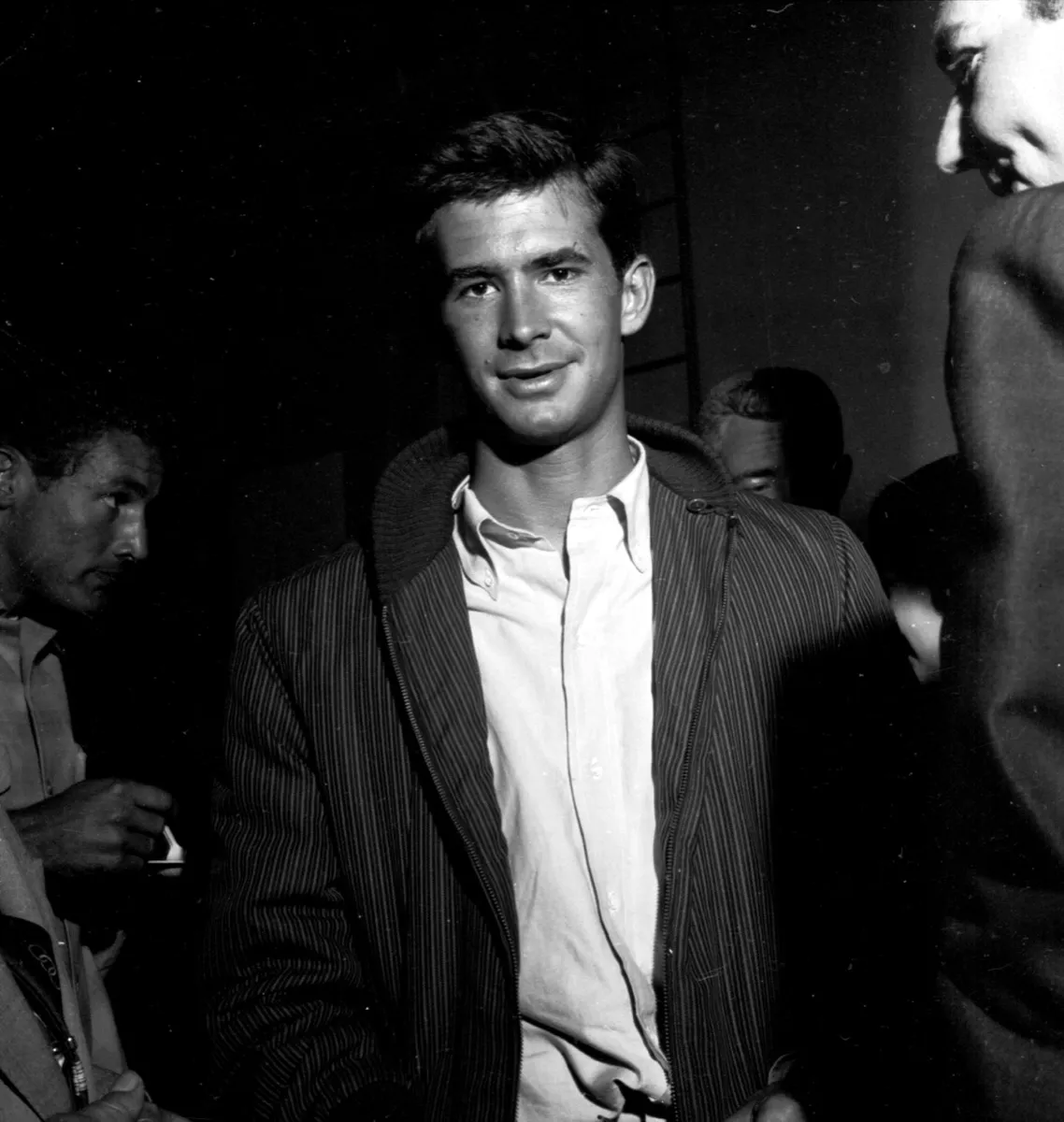
Perkins and Hunter eventually split not because of studio meddling or having to stay out of the public eye, but because of a career move. Hunter explained to Attitude that he “was pitching [Warner Bros.] for a movie called Fear Strikes Out about a famous baseball player.” He had even played the lead—a fictionalized version of Major League player Jimmy Piersall—in a 1955 TV adaptation of Piersall’s autobiography that was part of the anthology series Climax!. But, as he explained in 2018, “Tony got Paramount to buy [the feature version] and went for the role.”
Fear Strikes Out, released in 1957, was Perkin’s next film after Friendly Persuasion, and it helped to further establish him as a young performer who could tackle serious material. The film depicted Piersall’s bipolar disorder and his complicated relationship with his father. Hunter saw in the role an opportunity to prove himself as a dramatic actor, and Perkins swiping it was a blow. “It made a difference to our relationship,” he told Attitude. “I felt betrayed; I was really disappointed by that.” Though they didn’t break up immediately, their relationship never recovered.
“We sort of separated, I guess we just outgrew each other, and then we lost touch for a while,” he remembered.
For more Old Hollywood drama sent right to your inbox, sign up for our daily newsletter.
Perkins married and had a family.
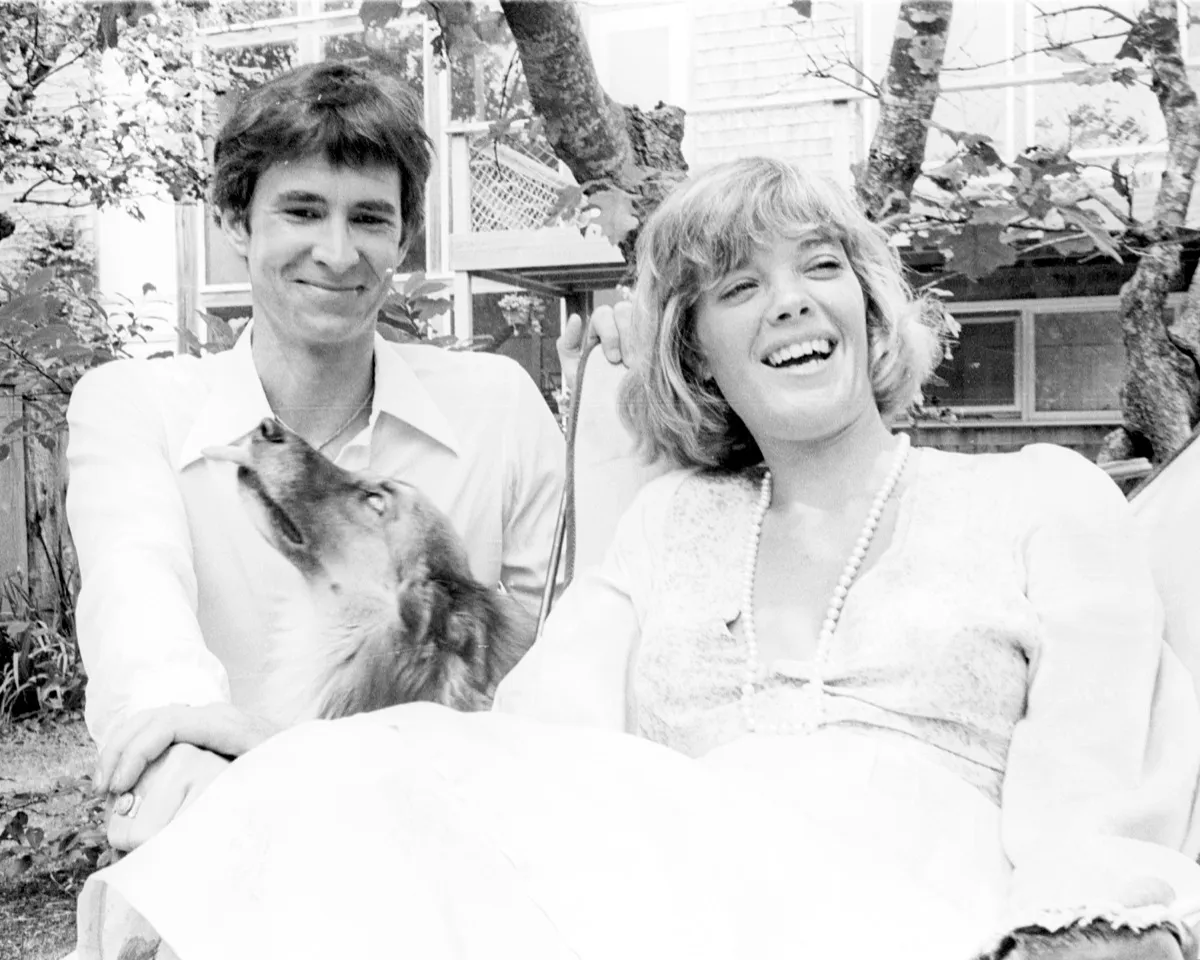
Two years after their split, Alfred Hitchcock’s Psycho came along, turning Perkins into a household name. As detailed in the 1999 documentary, Anthony Perkins: A Life in the Shadows, afterwards, the star bought himself out of his Paramount contract and spent the next few years making films in Europe. However, rumors about his sexuality continued to circulate. In 1972, Perkins married photographer Berry Berenson after she became pregnant with his child. According to Charles Winecoff’s 1996 posthumous biography, Split Image: The Life of Anthony Perkins, the actor had also been going to an analyst in the hopes of “curing” his homosexuality. Still, by most accounts, Berenson and Perkin’s had a happy family life, welcoming sons Osgood and Elvis.
Hunter told Attitude he didn’t judge Perkins for marrying a woman. “The choices we make in life are very important,” he explained. “He made that choice, and for him, it was the right decision.”
Long after their breakup, the former lovers met again in 1984, as Hunter was making the 1985 film Lust in the Dust. “I called him up, went up to the house, and sat down with the family,” he recalled. “It was the first time I’d seen him in years. I was very pleased to see that he had a wonderful family.”
But Hunter never saw Perkins again after that.
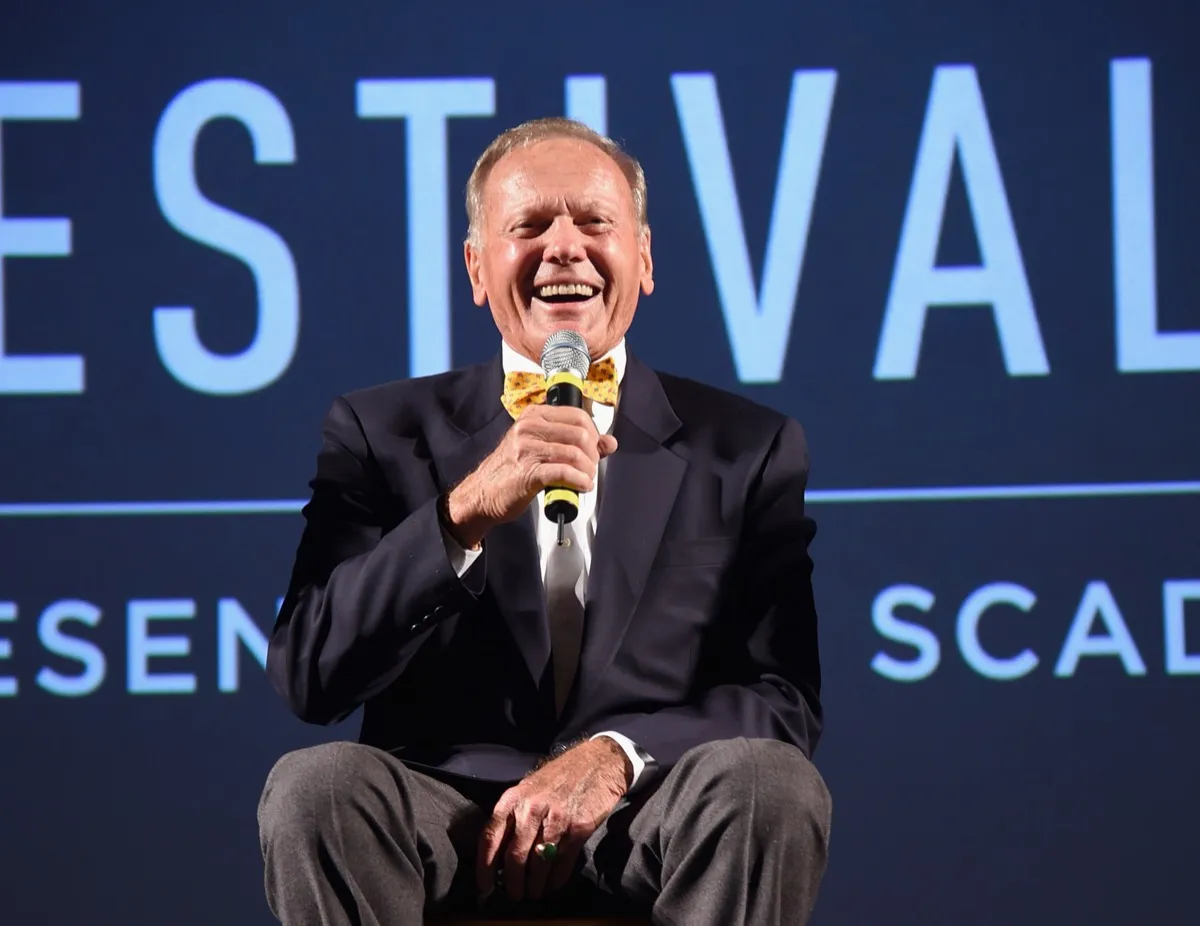
Though it wasn’t reported until after he died, Perkins was diagnosed as HIV+ in 1990, and for two years, he hid his condition, even as he kept working. The actor passed away on Sept. 12, 1992 at age 60 of AIDS-related pneumonia. In a statement he’d written in his final days that was released by Berenson to The Los Angeles Times after his death, Perkins said, “I chose not to go public because, to misquote Casablanca, ‘I’m not much good at being noble,’ but it doesn’t take much to see that the problems of one old actor don’t amount to a hill of beans in this crazy world.”
Perkins keeping his condition private also meant that Hunter didn’t know that anything was wrong until it was too late. “I heard that he was ill; I called and was told he’d just passed away,” he told Attitude. “I never got the chance to see him again.” However, Hunter never had hard feelings about the way his one-time boyfriend chose to live his life, saying, “Who am I to decide—to even discuss—what was right for him? That was his own choice.”
As for Hunter, he married Glaser in 2013, as soon as it was legal, after 30 years together. He died on July 8, 2018 after going into cardiac arrest.